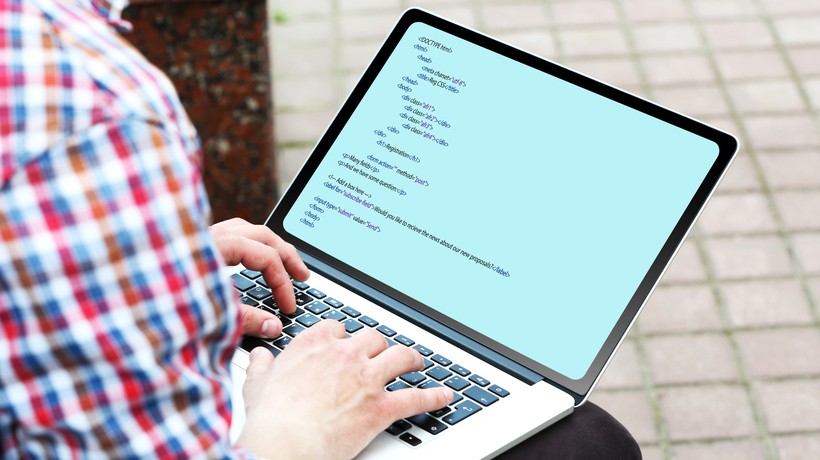The Modern Definition Of Academic Rigor
The saying, "If it's easy, it's not worth doing," has long been used to encourage perseverance through hard work and fatigue. However, its modern corollary—"It is only worthy if it's hard"—encapsulates the mindset driving today's debate on academic rigor.
With technological advancements, education has become more accessible, and tasks such as submitting assignments or taking exams have been streamlined through online platforms. Logically, this should reduce stress for both students and faculty. Yet, the opposite has often been true. What once required time-consuming, lengthy assignments has now been replaced by an overwhelming volume of content to be covered within the same timeframe, leading to increased stress and pressure on students.
The Shift In Academic Stress
The basic question remains: "Does hard equal good?" While college stress is as old as colleges themselves, the changing reasons behind that stress are what should raise concern. Previously, stress stemmed from chasing deadlines, taking class tests, and facing surprise quizzes. Now, the stress is rooted in the sheer volume of material packed into curriculums. Some colleges and courses take pride in how difficult they are, measuring rigor by the amount of content and the intensity of the workload.
While there is a sense of achievement in overcoming something difficult, that feeling must be rooted in real stakes—not in stakes that are arbitrarily high for the sake of difficulty. We can take pride in climbing a high mountain, but does our sense of accomplishment increase if we insist on climbing it using only our hands?
The Toll On Learning And Well-Being
This shift in the definition of rigor may be taking a toll not only on students' well-being but also on the quality of their learning experiences. When students are inundated with excessive material to memorize or grasp within a compressed timeframe, the focus often shifts from deep understanding to mere survival. Rather than developing a true grasp of concepts, students may resort to rote memorization or superficial learning to simply meet the demands of the course. This, in turn, undermines the very purpose of education—to foster critical thinking, creativity, and a passion for knowledge.
A study highlighted in The Washington Post reveals that students view academic workload as the primary challenge on campus, with many expressing that the sheer amount of material and the pressure to perform are overwhelming. Similarly, The Chronicle of Higher Education reports that professors are observing record numbers of students who are disengaged, stressed, and uncertain about their futures, attributing this to the overwhelming academic demands.
Furthermore, traditional notions of rigor, such as strict attendance policies and inflexible deadlines, can disproportionately affect disabled students, making their educational experiences unnecessarily difficult.
Mental Health And The Rigorous Education System
In response, some institutions are considering policies to support students' mental health by allowing breaks from class. However, implementing such accommodations requires instructors to adjust traditional standards, highlighting the tension between maintaining academic rigor and addressing students' well-being.
For instance, the University of North Carolina at Chapel Hill introduced institution-wide mental health breaks in Fall 2020, which were made permanent in 2021. These breaks are scheduled throughout the academic year, allowing students to pause and focus on their health without the pressure of academic commitments during those days (Inside Higher Ed, 2024).
Additionally, some colleges are encouraging faculty to include mental health day policies in their syllabi. A 2024 survey found that one in five students believes that such policies would be helpful in promoting their well-being. Faculty members are advised to offer one excused absence for mental health during the term, allowing students to make up missed work later, but not requiring attendance on that day (Inside Higher Ed, 2024).
These initiatives represent a shift towards recognizing the importance of mental health in academic settings. However, they also require faculty to adapt their traditional approaches to attendance and grading, balancing the need for academic rigor with the well-being of students.
A growing number of colleges are adopting feedback-based grading systems, where students can revise their work after receiving feedback, allowing them to learn from mistakes and gradually improve their understanding. These systems are designed not only to reduce stress but also to emphasize the learning process itself, making it more meaningful and less focused on just achieving the highest score.
The Counterproductive Nature Of Over-Rigor
What's more, an overly rigorous approach can inadvertently discourage students from engaging with their coursework in a meaningful way. When academic achievement is only equated with enduring intense pressure, students may develop a mindset that values "getting through" the work rather than truly learning or enjoying the process. This is not only counterproductive but also harmful to long-term academic and personal growth.
Redefining Academic Rigor: A Call For Meaningful Challenges
The alternative to mindless rigor, then, is to rethink what rigor truly means in an academic setting. Real rigor should challenge students to think critically, solve problems creatively, and develop transferable skills—not simply overwhelm them with content. It's about fostering an environment where students are encouraged to engage deeply with the material, make connections across disciplines, and apply what they learn to real-world situations.
Conclusion: Shifting Focus From "Hard" To "Smart"
While cramming until our ears spill out answers and equations is a part of the college experience, there must be a solid reason behind it. The very institutions that are supposed to reward merit must create genuine merit, not perpetuate the hustle culture behavior inherent in the current approach to rigor.
In the end, it's not the difficulty of the task that should define its value; it's the opportunity for growth that comes with it. If we truly want to prepare students for the future, we must shift the focus from merely being "hard" to being "smart"—from overwhelming workloads to thoughtfully structured challenges that prioritize understanding and mastery over surface-level achievements.
Action Points For Rethinking Rigor In Higher Education
1. Adopt Feedback-Driven Grading
Shift focus from traditional grading to systems that emphasize feedback and iterative improvement. Allow students to revise their work based on feedback to deepen their understanding and reduce the stress of one-time assessments.
2. Redefine Success Metrics
Move beyond grades and exams as the sole measure of success. Incorporate project-based learning, peer collaboration, and real-world problem solving to assess students' true learning and creativity.
3. Introduce Flexible Deadlines
Implement more flexible timelines and pacing to reduce pressure and allow students to engage more deeply with the material. This would help promote mastery over memorization.
4. Prioritize Mental Health Support
Provide resources such as counselling and stress management workshops. Creating an open dialogue around mental health helps reduce stress and ensures a healthier academic environment.
5. Reassess Curriculum Design
Evaluate curricula to ensure the content is balanced with students' cognitive load. Focus on depth over breadth, allowing students to fully engage with core concepts without feeling overwhelmed.
6. Innovation Based On AI Technology
There are many tools and options out there for helping students study smarter, such as AI-based learning platforms. Academic endorsement of such tools can go a long way in reducing the performative rigor and burnout.









